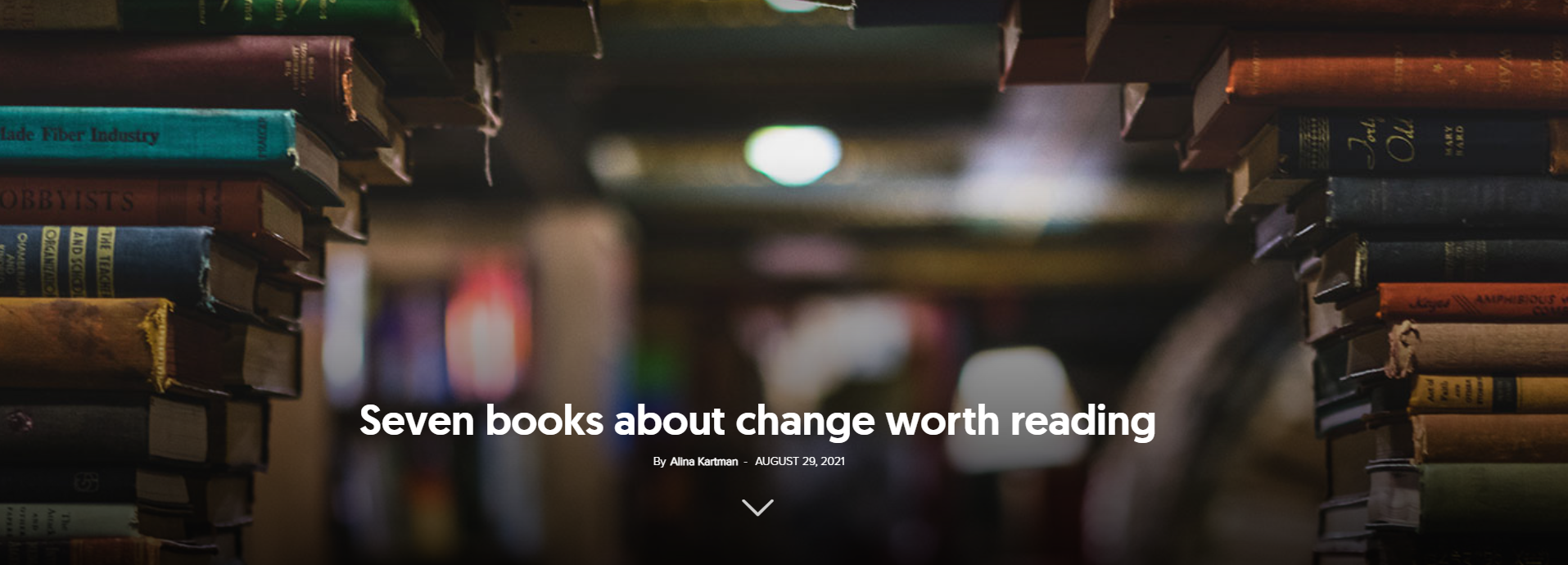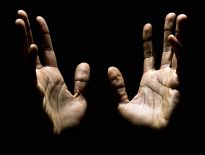Meetings with people and books have shaped the space for a sometimes unequal, sometimes unsatisfactory growth between the human I am and the one I would like to be.
On my 35th birthday, I wondered for the first time what I would say to my more-than-a-decade younger version, and (especially) what she would tell me.
I was lost in a fairy-tale bookstore in my student town, and I occasionally let myself get carried away by the image of the abundant snow, which was visible through the glass wall. It was easy to go back in time, but more difficult to strike a dialogue between the past and the present. What would the 18-year-old girl have said about what I had become, what would she have reproached me for regarding the hopes she had invested in me?
Writer Julien Green confessed that, whenever he read a diary written in former times, he regretted the economy with which the author shared details about everyday life. The same regret, but much more intense, comes over me whenever I remember that I did not regularly keep a diary in which I wrote down details about everything I lived, thought, or felt on ordinary days, beyond the memorable experiences.
If I were to hold such a mirror-diary in my hands, perhaps I would better understand where, how, why, and what I have become over time. I am convinced that what has changed me was not necessarily the notable events, but what is related to the realm of details: gestures, words, silences, meetings, curiosities.
My passion for words was born out of curiosity to decipher the voiceless chirp of lazy signs lined up on the white of the paper.
My memory may be playing tricks on me, but I feel like I know the exact night when it all started. I wasn’t even four-and-a-half years old yet, but I had already exasperated my family, my neighbours, the children on the street, or anyone who could read me a story—or two, or nine—from the books I was always carrying with me. That evening, a regular evening at my grandparents’ house in the city, after asking for the tenth time what was written in the newspaper that my grandfather would have wished to browse quietly, he decided to start teaching me the alphabet, as a matter of urgency.
My grandfather’s teaching methods, as far as I can remember, were unusual and inflexible, and the way I learned to write will forever remain a mystery, given that the stage of writing lines, circles and even disparate letters was mercilessly eliminated. But it was worth the effort: the world I lived in miraculously expanded its borders, and I began to travel in it with enthusiasm, using a vehicle that was both safe and fascinating: a new book.
For a while I moved completely into this unreal and beautiful world, living, breathing, and dreaming there, among strange and familiar characters at the same time, whose joys and sorrows I began to live. I shuddered at Fantine’s new appearance, stripped of teeth and hair, a sacrifice demanded by her motherly love and the devouring greed of the Thénardiers.
I could feel the splinters of the cold piercing the Little Match Girl as she shivered staring at the festively lit windows. I empathised with the ignorance of poor Tom Canty, who overnight became Prince of Wales and who broke nuts with the Great Seal. I was excited by every step of the road to success taken by Huţu, nicknamed “Budulea Taichii”, the son of the bagpiper from Cocorăști.
I felt the bitter taste of the kopeks for which Alyosha Peshkov worked. I shared his amazement that the God of his grandfather, who loved no one and punished all, was so different from the God of his grandmother, to whom people, animals, even herbs willingly submitted.
Later, my good middle school Romanian teacher would try to put in order my habit of reading non-selectively, even compulsively, teaching me that reading is not an end in itself, but a means to grow, to understand (myself), to live what would otherwise be inaccessible to me. The meeting with books was the best multiplier of the experiences that a child growing up in the rather harsh world of the village could have, a contrast material to the gloom of the communist Golden Age, but also to the rigid school regime.
I had no way of knowing then that I was one of the orchid children, who do not bloom anyhow and anywhere, their development depending excessively on their environment. However, I had a vague awareness that the school environment, with its austerity and its notes of verbal and physical violence, wasted me, fragmented me into pieces that I would not be able to easily put back together later on.
If this educational model must have had a hard say in everything I became or didn’t become over time, it’s no less true that those teachers with sparkling minds and hearts (too few in number) not only helped me break through the elements of student life, but planted in me the desire to fly, with the rest of the wings left uncut.
Meetings with people were the other oar of my development, one that I handled quite awkwardly, because my interest in books often led me to the extreme of losing my grip on reality.
My college years brought me close to the most vulnerable categories of people, the disadvantaged and the eternal losers in the game of life. This was an exercise I needed, although the truth is that empathy (which some researchers claim develops through reading literature) was modelled much earlier. It was modelled on the days when my mother, often accompanied by us, went to the hospital wards, to the homes of the elderly, the suffering, the forgotten, for whom she always had a modest gift and encouragement with an unlimited guarantee period.
“What if God lived there? Would you go then?” This was my mother’s question, which she conveyed to us in dozens of forms, until we understood that God is hungry and thirsty, that He suffers from cold and loneliness in the body of His most insignificant brothers. On the framework of these meetings the understanding was built that the world does not begin and end with our problems, and that we cannot really grow if we only follow the direction drawn by our own needs.
Finally, in the canvas of my becoming, the threads of beautiful friendships were intertwined, opening new intellectual, spiritual, and relational horizons, which remained tonic landmarks of development even when they did not prove to be long-distance. The meetings that I consider truly transformative remain the ones in which we could be vulnerable and authentic on both sides, knowing that we can resort to that inexhaustible capital that Liiceanu mentioned when he defined truly unique friendships.
Scheduled and random meetings with people and books have always shaped the space for a sometimes unequal, sometimes unsatisfactory growth, about which one thing can be said with certainty: it did not eliminate the gap that Green wrote about, between the human I am and the one I would like to be. It only brought the latter into the spotlight, revealing its features ever so clearly.
Carmen Lăiu graduated in 2000 from the Faculty of Social Work at the “Alexandru Ioan Cuza” University of Iași (UAIC). She is 43 years old, has a long-standing passion for books and writing and is an editor of The Signs of the Times Romania and ST Network.




















